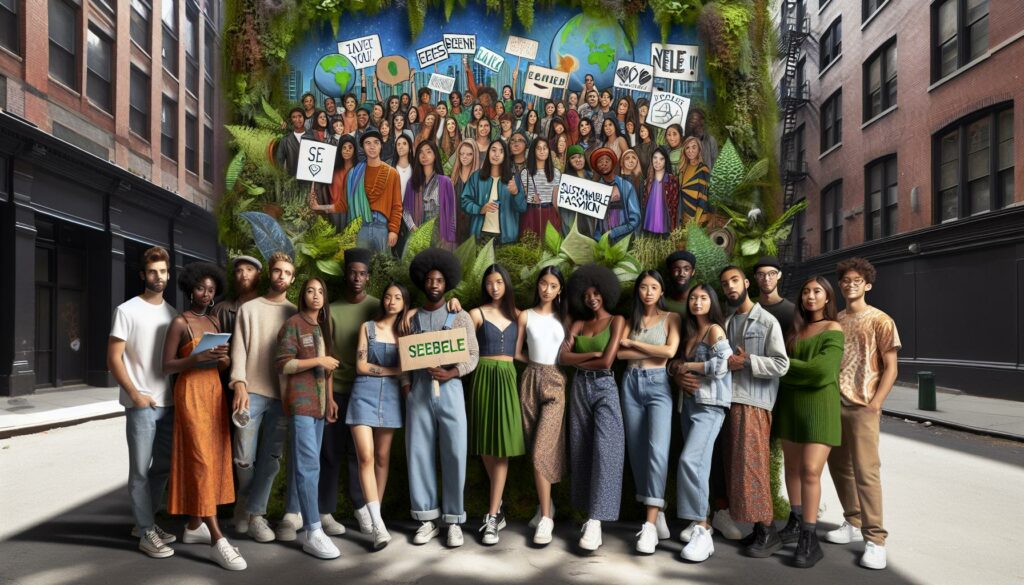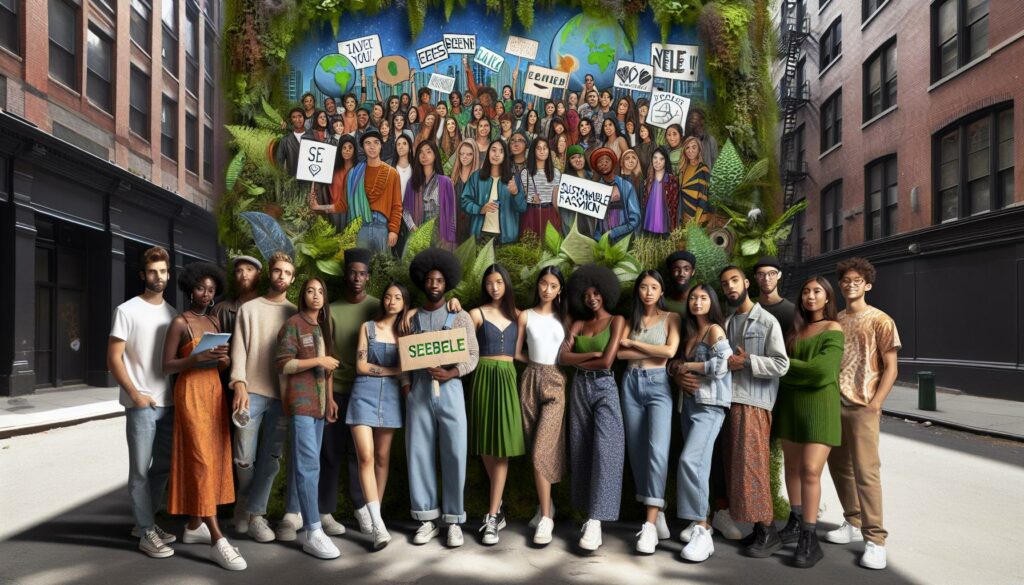In today’s world, where fast fashion dominates, the push for sustainable men’s fashion is more important than ever. I’ve seen how our clothing choices impact the planet, and it’s time to rethink what we wear. Sustainable fashion isn’t just a trend; it’s a movement towards a more responsible and ethical approach to style.
By embracing sustainable menswear, I can make a positive difference without sacrificing quality or style. From eco-friendly materials to ethical production practices, the options are expanding. In this article, I’ll explore how men can look sharp while contributing to a healthier planet, proving that sustainability and fashion can go hand in hand. Let’s dive into the world of sustainable mens fashion and discover how to elevate our wardrobes responsibly.
- Embrace Eco-Friendly Materials: Sustainable men’s fashion prioritizes materials like organic cotton, recycled polyester, and innovative options such as Tencel and hemp to minimize environmental impact.
- Support Ethical Production: Choose brands that emphasize transparency, fair labor practices, and safe working conditions, fostering respect for human rights and promoting a more equitable fashion ecosystem.
- Invest in Longevity: Opt for durable and versatile pieces to reduce overconsumption and create a responsible wardrobe that lasts longer, saving money in the long run.
- Explore Secondhand Options: Thrift shopping and upcycling extend the life of clothing, reduce waste, and offer unique styles, contributing significantly to sustainable fashion.
- Adopt Minimalism: A minimalist wardrobe encourages mindful consumption by focusing on quality over quantity, leading to less clutter and more intentional style choices.
- Stay Informed on Trends: Keep up with leading sustainable brands and emerging practices that prioritize environmental and social responsibility, empowering consumers to make informed choices in their fashion selections.
Sustainable Mens Fashion
Sustainable men’s fashion focuses on ethical production methods, eco-friendly materials, and conscious consumer choices. This sector emphasizes the reduction of environmental impact while maintaining style and quality. Key aspects include:
- Materials: Sustainable brands often use organic cotton, recycled fabrics, and innovative materials like Tencel and hemp. These choices minimize environmental damage and promote better working conditions for farmers.
- Production practices: Transparent supply chains and fair labor conditions stand central to sustainable fashion. Brands committed to ethical practices ensure that workers receive fair wages and operate in safe environments.
- Longevity: Durable clothing and timeless designs encourage less frequent purchasing. Investing in high-quality, versatile pieces reduces overconsumption and promotes a more responsible wardrobe.
- Secondhand and upcycled options: Thrift shopping and upcycling contribute significantly to sustainable fashion. By giving pre-owned items a second life, individuals reduce waste and discover unique clothing options.
- Minimalism: Adopting a minimalist wardrobe reduces clutter and encourages mindful consumption. I focus on versatile pieces that mix and match easily, allowing for a fresh look without excessive purchases.
Sustainable men’s fashion reflects a lifestyle choice that values quality, ethics, and environmental responsibility. This approach not only improves personal style but also supports a movement towards a more sustainable future in fashion.
Key Principles Of Sustainable Fashion
Sustainable fashion revolves around vital principles that promote eco-friendliness and social responsibility. Understanding these principles is essential for making informed clothing choices.
Environmental Impact
Sustainable fashion significantly reduces the environmental impact of clothing production. Eco-friendly materials, like organic cotton and recycled polyester, minimize resource depletion. For instance, organic cotton uses 91% less water than conventional cotton. Sustainable practices also minimize harmful waste. From dyeing processes to packaging, brands adopting waterless technologies or biodegradable materials lessen pollution. Supporting eco-conscious brands can lead to a significant decrease in carbon footprints and natural resource exploitation.
Ethical Production
Ethical production prioritizes fair labor practices and safe working conditions. Brands committed to sustainable fashion often ensure transparency across their supply chains, allowing consumers to trace garment origins. Fair Trade certifications, for example, ensure workers earn fair wages and work in safe environments. Ethical production fosters respect for human rights, promoting not just better working conditions but also supporting local communities. Emphasizing these practices helps create a fashion ecosystem that values both people and the planet.
Trends In Sustainable Mens Fashion
Sustainable Mens Fashion continues to evolve, with innovative practices and materials emerging that reflect a commitment to the environment and social responsibility. Here are some key trends shaping this movement.
Materials Used
Sustainable menswear often incorporates eco-friendly materials that minimize environmental impact.
- Organic Cotton: Grown without harmful pesticides, organic cotton uses 91% less water than conventional cotton.
- Recycled Polyester: Derived from used plastic bottles, this material reduces waste and energy consumption during production.
- Tencel: Made from sustainably sourced wood pulp, Tencel offers biodegradability and a soft feel, making it a popular choice.
- Hemp: Known for its durability, hemp requires minimal water and pesticides, resulting in a lower carbon footprint.
- Bamboo: Fast-growing and requiring less water, bamboo fabric is used in various clothing styles and promotes sustainability.
Popular Brands
Several brands lead the way in sustainable mens fashion, offering eco-friendly options without sacrificing style.
- Patagonia: Renowned for its commitment to environmental activism, Patagonia uses recycled materials and promotes fair labor.
- Everlane: Transparency defines Everlane, with a focus on ethical production practices and minimalist designs.
- Reformation: While primarily known for women’s fashion, Reformation includes men’s options with eco-conscious materials and sustainable practices.
- Outerknown: Co-founded by surfer Kelly Slater, Outerknown emphasizes organic and recycled materials while supporting fair wages.
- Nudie Jeans: This brand commits to organic cotton and offers a repair program to promote clothing longevity and reduce waste.
These materials and brands illustrate the shift towards sustainable menswear, highlighting the importance of conscious consumption in today’s fashion landscape.
Benefits Of Choosing Sustainable Options
Choosing sustainable fashion options brings numerous advantages that benefit individuals, communities, and the environment. These options promote a more responsible approach to style and contribute to a healthier planet.
Economic Considerations
Investing in sustainable fashion often leads to long-term savings. Sustainable clothing typically emphasizes durability, meaning garments last longer and reduce the frequency of replacements. Over time, this can significantly lower clothing costs. Additionally, many sustainable brands are transparent about their pricing, reflecting fair wages for workers and ethical production practices. Supporting these brands fosters a more equitable economy while encouraging innovation in sustainable materials and practices.
Social Responsibility
Embracing sustainable menswear aligns with social responsibility. Many sustainable brands prioritize ethical labor practices, ensuring that workers receive fair treatment and safe working conditions. This commitment supports local economies and empowers communities. By choosing sustainable options, I contribute to a movement that champions not only environmental health but also human dignity. Engaging with brands that uphold these values creates a ripple effect, inspiring others to consider the social implications of their fashion choices.
Challenges In Sustainable Mens Fashion
Sustainable men’s fashion faces several challenges that affect its growth and acceptance. Key areas of concern include consumer awareness and industry standards, both of which play vital roles in shaping this movement.
Consumer Awareness
Limited understanding of sustainable fashion hinders its adoption among consumers. Many shoppers lack knowledge about eco-friendly materials and ethical practices, leading to indifference towards purchasing sustainable items. Informing consumers about the benefits of sustainable clothing is crucial. As awareness increases, consumer demand for transparent brands rises. Examples of effective campaigns include educational resources on the environmental impact of fast fashion, showcasing the importance of sustainable choices in everyday life.
Industry Standards
Inconsistent industry standards create confusion for both consumers and brands. Without clear regulations, manufacturers may label products as “”sustainable”” or “”eco-friendly”” without meeting defined criteria. This lack of standardization complicates consumer decision-making and undermines genuine sustainable initiatives. Established organizations are pushing for uniform guidelines to enhance transparency. Efforts include certifications that verify sustainable practices, which allow consumers to make informed choices. By collaborating with stakeholders, the industry can develop coherent standards that promote true sustainability.
Embracing Sustainable Mens Fashion isn’t just a personal choice; it’s a commitment to a better future. By opting for eco-friendly materials and supporting ethical brands, I’m not only enhancing my wardrobe but also contributing to a healthier planet. The shift towards sustainability encourages me to rethink my consumption habits and invest in quality pieces that stand the test of time.
As I navigate this journey, I find that educating myself about sustainable practices and brands empowers me to make informed decisions. Every small step I take towards sustainable fashion creates a ripple effect, inspiring others to join the movement. Together, we can redefine style while prioritizing our planet and its people.



